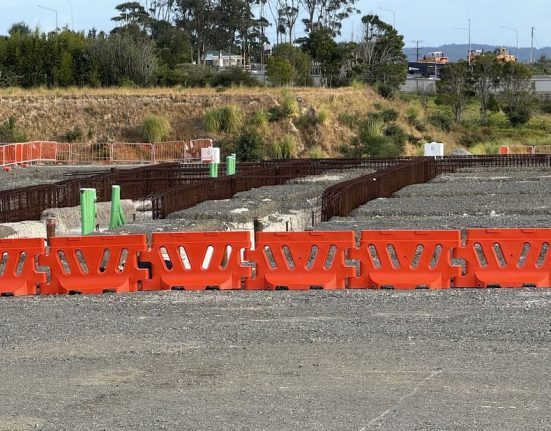 |
| Kim Nyoun Ho, chairman of the Korean Chamber of Commerce in Vietnam |
How are strategies led by major conglomerates shaping the South Korean investment trend in Vietnam?
South Korean conglomerates operating in Vietnam are shifting from their traditional role as labour-intensive production bases towards more advanced and strategic investment directions.
Beyond leveraging low-cost labour, they are targeting Vietnam’s growing domestic market, strengthening its role as a critical hub in global supply chains, and seeking to establish local capabilities in research and development (R&D) as well as high-tech industries.
Specifically, several strategic shifts have emerged. Firstly, there is a transition towards high-tech and high value-added industries. Investments are expanding into fields tied to the Fourth Industrial Revolution, such as semiconductors, AI, biotechnology, and future mobility.
Secondly, companies are strengthening localised production and R&D capabilities, developing products tailored to Vietnamese consumer needs, localising production systems, and establishing R&D centres that utilise local talent, thus contributing to Vietnam’s own technological capacity.
Thirdly, there is a strong push to build sustainable growth models, including the adoption of environmental, social, and governance (ESG) management practices and eco-friendly production processes. This aligns with Vietnam’s policy focus on sustainability and is regarded as essential for long-term growth.
Indeed, global investment trends are shifting from low-cost manufacturing toward green technology and the establishment of sustainable supply chains. South Korean companies are fully aware of this change and are responding proactively.
While the large-scale labour-intensive manufacturing bases that South Korean firms have established in Vietnam remain a strong pillar of the Vietnamese economy and an important supply source for major global brands, many South Korean companies are diversifying their investments to secure new growth engines. These include green energy, smart factories, IT solutions, and eco-friendly materials.
As the Vietnamese government sets carbon neutrality targets and accelerates the development of renewable energy, South Korean solar and wind power companies are actively entering the market. At the same time, with the growing importance of stability and sustainability in global supply chains, South Korean businesses are increasing investments in enhancing production efficiency within Vietnam, expanding the use of eco-friendly materials, and strengthening ESG management.
These developments demonstrate that South Korean companies are focusing not merely on cost reduction, but on creating long-term value for future growth.
How important is the local government’s policy-driven motivation to South Korean businesses and investors in Vietnam?
For Korean companies and investors, the policy-driven motivation of local governments is extremely important. While the central government’s broad policy directions matter, it is the local government’s commitment to concrete implementation, administrative efficiency, and flexibility that most directly affects day-to-day business operations.
The strategic resolutions on science and technology, innovation, digital transformation, international integration, legal reforms, and private economic development set out crucial policy directions for Vietnam’s future growth. South Korean companies hope these resolutions will translate into tangible incentives, administrative support, and enhanced legal transparency at the local level.
The more clearly local governments articulate these strategic objectives, present concrete roadmaps for achieving them, and actively foster a business-friendly environment, the more actively foreign investment will flow in. Examples include infrastructure investment to support digital transformation, tax incentives for innovative enterprises, and training programmes for skilled labour.
Such proactive policy commitment at the local level is a decisive factor in enabling South Korean companies to expand successfully in Vietnam and commit to long-term investments.
How can Vietnam retain South Korea as a leading global investor in an increasingly uncertain world?
Despite Vietnam’s positive economic outlook, South Korean businesses face several challenges on the ground. Firstly, there is uncertainty in legal and administrative procedures. Vietnamese regulations change rapidly, but ambiguities in interpretation or delays in administrative processes can create difficulties, particularly in areas such as investment licensing, taxation, and labour laws.
Secondly, infrastructure remains inadequate. Limitations in logistics and transportation can affect production and distribution efficiency, while unstable power supply can also burden operations.
Thirdly, there is a shortage of skilled labour and rising labour costs. While education levels are improving, securing specialised personnel for advanced industries or qualified mid-level managers remains challenging, and wage pressures are increasing alongside economic growth.
Fourthly, competition is intensifying as Vietnam’s appeal draws companies from around the world, not just from South Korea.
In this context, South Korean businesses expect the following legal improvements to address the following issues. They are greater transparency and predictability in regulations: investment, tax, labour, and other laws directly affecting business should be clearer and more consistently interpreted, enabling companies to make long-term plans.
The other is streamlining and improving administrative procedures: simplifying licensing processes, shortening processing times, and expanding digital administrative services will reduce bureaucratic burdens. The effective operation of one-stop service systems is key.
They also expect expanding and maintaining foreign investment incentives. Incentives should be enhanced and stabilised over the long term in priority sectors such as green technology and advanced industries that Vietnam aims to foster.
Last but not least is strengthening intellectual property protection: stronger legal safeguards are needed to protect companies from technology leaks and counterfeit products.







